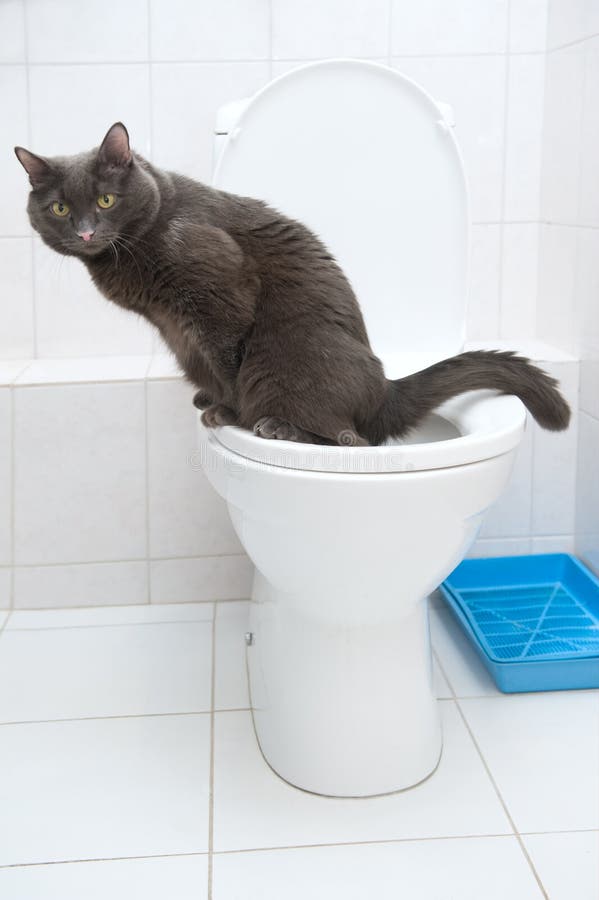Your Perils of Flushing Animal Waste Down the Toilet
Your Perils of Flushing Animal Waste Down the Toilet
Blog Article
The article author is making a number of great points regarding 10 Things You Should Never Flush Down The Toilet overall in this post on the next paragraphs.

When it comes to dealing with waste, especially animal waste, many people frequently resort to the hassle-free alternative of flushing it down the commode. Nonetheless, this seemingly simple option can have major repercussions for the atmosphere and public health. In this post, we'll check out why flushing animal waste down the commode is a poor idea and supply different methods for proper disposal.
Intro
Appropriate garbage disposal is crucial for keeping environmental sustainability and public health. While it might seem safe to flush animal waste down the commode, it can lead to different concerns, both for the setting and human well-being.
Dangers of flushing animal waste
Ecological influence
Purging pet waste introduces unsafe bacteria and virus right into waterways, which can negatively influence aquatic ecological communities. These pathogens can contaminate water sources and injury marine life, interfering with delicate ecosystems.
Public health concerns
Animal waste consists of damaging bacteria such as E. coli and Salmonella, which can posture major wellness dangers to human beings. Purging pet waste down the bathroom can contaminate water supplies, bring about the spread of diseases and infections.
Alternatives to flushing
As opposed to flushing animal waste down the bathroom, there are several alternative disposal approaches that are more eco-friendly and sanitary.
Composting
Composting pet waste is an eco-friendly way to get rid of it. By composting, organic matter is broken down right into nutrient-rich dirt, which can be used to feed gardens and plants.
Garbage dump disposal
Taking care of animal waste in a garbage dump is an additional alternative. While not as eco-friendly as composting, it is a more secure option to flushing, as it stops the contamination of water sources.
Pet dog waste disposal systems
There are customized animal garbage disposal systems readily available that safely and hygienically take care of animal waste. These systems commonly make use of enzymes to break down waste and get here rid of odors.
Steps to proper animal garbage disposal
To make sure correct disposal of animal waste, comply with these steps:
Scooping and landing waste
Routinely scoop and bag pet waste making use of naturally degradable bags. This avoids waste from infecting the environment.
Utilizing marked waste bins
Dispose of bagged pet waste in assigned waste bins, such as compost bins or garbage dump bins. Stay clear of flushing it down the commode in any way prices.
Cleaning can and pet dog areas consistently
Routinely clean can and animal areas to prevent the buildup of waste and microorganisms. Usage pet-safe cleansing items to keep hygiene.
Benefits of proper disposal approaches
Taking on appropriate disposal methods for animal waste supplies several benefits:
Minimized environmental pollution
Appropriate disposal approaches minimize the risk of environmental pollution, securing waterways and ecological communities from contamination
Lessened risk of water contamination.
By staying clear of flushing animal waste down the bathroom, the danger of water contamination is considerably decreased, safeguarding public health.
Improved cleanliness and health
Correct disposal techniques advertise much better hygiene and health, producing a much safer atmosphere for both human beings and pets.
Conclusion
Finally, purging pet waste down the bathroom is hazardous to the setting and public health. By adopting alternate disposal techniques and following correct waste management techniques, we can minimize the adverse effect of animal waste and add to a cleaner, healthier world.
Why You Should Never Flush Cat Poop Down the Toilet
A rose by any other name might smell as sweet, but not all poop is created equal. Toilets, and our sewage systems, are designed for human excrement, not animal waste. It might seem like it couldn’t hurt to toss cat feces into the loo, but it’s not a good idea to flush cat poop in the toilet.
First and foremost, assuming your cat uses a litter box, any waste is going to have litter on it. And even the smallest amount of litter can wreak havoc on plumbing.
Over time, small amounts build up, filling up your septic system. Most litter sold today is clumping; it is made from a type of clay that hardens when it gets wet. Ever tried to scrape old clumps from the bottom of a litter box? You know just how cement-hard it can get!
Now imagine just a small clump of that stuck in your pipes. A simple de-clogger like Drano isn’t going to cut it. And that means it’s going to cost you big time to fix it.
For an amusing, graphic tale of what happens when you flush too much litter down the toilet all at once, take a few minutes to read Gene Weingarten’s 2017 Washington Post column “So that’s what happens when you flush cat litter down the toilet.”
Parasitic Contamination
Believe it or not, your healthy kitty may be harboring a nasty parasite. Only cats excrete Toxoplasma in their feces. Yet it rarely causes serious health issues in the cats that are infected. Most people will be fine too if infected. Only pregnant women and people with compromised immune systems are at risk. (If you’ve ever heard how women who are expecting are excused from litter cleaning duty, Toxoplasma is why.)
But other animals may have a problem if infected with the parasite. And human water treatment systems aren’t designed to handle it. As a result, the systems don’t remove the parasite before discharging wastewater into local waterways. Fish, shellfish, and other marine life — otters in particular — are susceptible to toxoplasma. If exposed, most will end up with brain damage and many will die.
Depending on the species of fish, they may end up on someone’s fish hook and, ultimately on someone’s dinner plate. If that someone has a chronic illness, they’re at risk.
Skip the Toilet Training
We know there are folks out there who like to toilet train their cats. And we give them props, it takes a lot of work. But thanks to the toxoplasma, it’s not a good idea.
Leave the toilet to the humans, and accept your future litter cleaning duty.

Routinely clean can and animal areas to prevent the buildup of waste and microorganisms. Usage pet-safe cleansing items to keep hygiene.
Benefits of proper disposal approaches
Taking on appropriate disposal methods for animal waste supplies several benefits:
Minimized environmental pollution
Appropriate disposal approaches minimize the risk of environmental pollution, securing waterways and ecological communities from contamination
Lessened risk of water contamination.
By staying clear of flushing animal waste down the bathroom, the danger of water contamination is considerably decreased, safeguarding public health.
Improved cleanliness and health
Correct disposal techniques advertise much better hygiene and health, producing a much safer atmosphere for both human beings and pets.
Conclusion
Finally, purging pet waste down the bathroom is hazardous to the setting and public health. By adopting alternate disposal techniques and following correct waste management techniques, we can minimize the adverse effect of animal waste and add to a cleaner, healthier world.
Why You Should Never Flush Cat Poop Down the Toilet
A rose by any other name might smell as sweet, but not all poop is created equal. Toilets, and our sewage systems, are designed for human excrement, not animal waste. It might seem like it couldn’t hurt to toss cat feces into the loo, but it’s not a good idea to flush cat poop in the toilet.
First and foremost, assuming your cat uses a litter box, any waste is going to have litter on it. And even the smallest amount of litter can wreak havoc on plumbing.
Over time, small amounts build up, filling up your septic system. Most litter sold today is clumping; it is made from a type of clay that hardens when it gets wet. Ever tried to scrape old clumps from the bottom of a litter box? You know just how cement-hard it can get!
Now imagine just a small clump of that stuck in your pipes. A simple de-clogger like Drano isn’t going to cut it. And that means it’s going to cost you big time to fix it.
For an amusing, graphic tale of what happens when you flush too much litter down the toilet all at once, take a few minutes to read Gene Weingarten’s 2017 Washington Post column “So that’s what happens when you flush cat litter down the toilet.”
Parasitic Contamination
Believe it or not, your healthy kitty may be harboring a nasty parasite. Only cats excrete Toxoplasma in their feces. Yet it rarely causes serious health issues in the cats that are infected. Most people will be fine too if infected. Only pregnant women and people with compromised immune systems are at risk. (If you’ve ever heard how women who are expecting are excused from litter cleaning duty, Toxoplasma is why.)
But other animals may have a problem if infected with the parasite. And human water treatment systems aren’t designed to handle it. As a result, the systems don’t remove the parasite before discharging wastewater into local waterways. Fish, shellfish, and other marine life — otters in particular — are susceptible to toxoplasma. If exposed, most will end up with brain damage and many will die.
Depending on the species of fish, they may end up on someone’s fish hook and, ultimately on someone’s dinner plate. If that someone has a chronic illness, they’re at risk.
Skip the Toilet Training
We know there are folks out there who like to toilet train their cats. And we give them props, it takes a lot of work. But thanks to the toxoplasma, it’s not a good idea.
Leave the toilet to the humans, and accept your future litter cleaning duty.

We had been shown that editorial about Don't Flush Your Pets Poo Down The Loo, Vet Warns from a pal on another web page. Are you aware of somebody who is occupied with Don't Flush Your Pets Poo Down The Loo, Vet Warns? Be sure promote it. Thanks so much for going through it.
Call Today Report this page